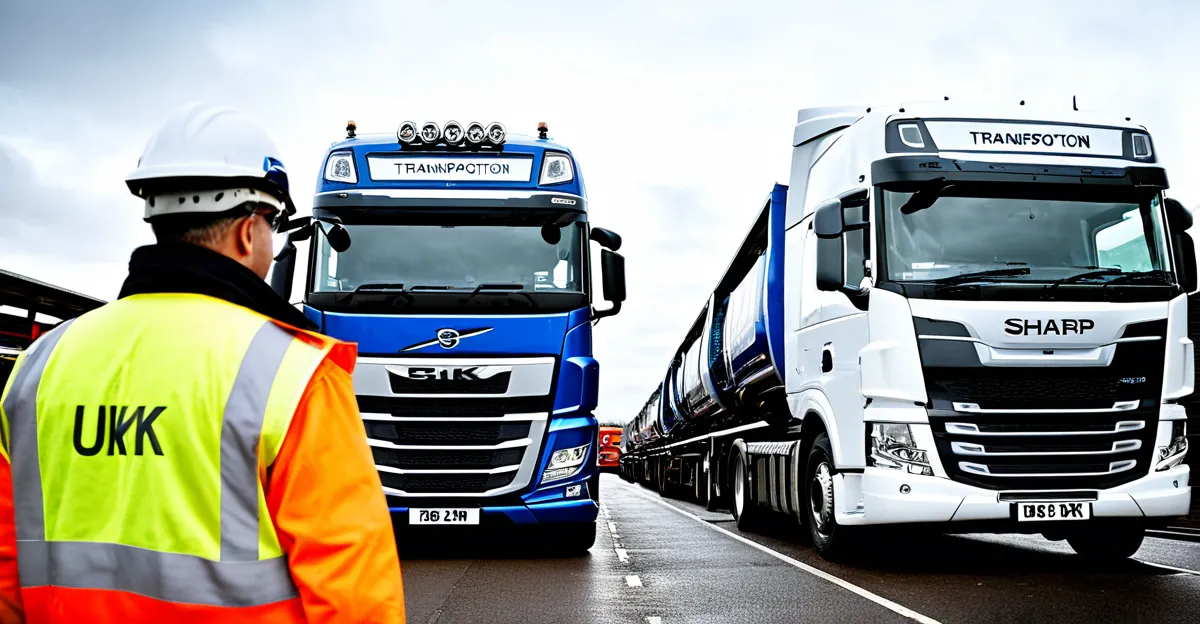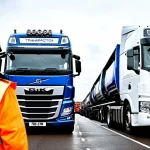Key Trends and Transformations in UK Transportation
The UK transport sector trends reveal significant transformations across rail, road, air, and sea transport. Technological advancements, policy shifts, and global influences have shaped the transportation sector evolution profoundly. For example, electrification initiatives are expanding in both public and private vehicles, directly affecting road transport dynamics. Rail networks are undergoing modernization with digital signaling systems, improving efficiency. Meanwhile, air and sea transport face challenges from environmental regulations, pushing toward cleaner fuel alternatives.
Recent changes in UK transportation also reflect broader shifts driven by climate policy and digitalisation. Stakeholders, including businesses and the public, are adjusting to new service models and regulatory requirements. Businesses see opportunities in innovations like autonomous vehicles and smart logistics platforms, which enhance operational efficiency. On the public side, there’s growing demand for sustainable and integrated transport options, influencing planning and investment priorities.
Additional reading : How Is the UK Navigating Current International Relations Challenges?
Understanding these major recent developments is crucial. They not only illustrate the sector’s rapid evolution but also highlight the interactive effects of technology, policy, and user behavior impacting the UK’s transport landscape today.
Government Policies Shaping UK Transport
Government policies play a pivotal role in steering the UK transport sector trends and recent changes in UK transportation. Current UK government transport policies emphasize decarbonisation, safety improvements, and infrastructure modernization to align with climate goals and public demand. For instance, the regulatory framework mandates stricter emissions standards for vehicles, directly shaping road and rail transport development.
This might interest you : How Are UK News Trends Evolving Today?
One major legislative shift is the increased funding directed to zero-emission public transport and electric vehicle incentives. These regulatory changes aim to accelerate the adoption of sustainable technologies across the transportation sector evolution. Planning strategies now prioritize integrated, multimodal connectivity—encouraging seamless transitions between trains, buses, and cycling routes.
The policy impact on transport sector operations is evident in the growing collaboration between government and private businesses, fostering innovation in smart ticketing and clean fleet technologies. Additionally, new safety and data regulations support the integration of autonomous and connected vehicles. Overall, these government actions create a supportive environment for the sector’s transformation while addressing environmental and economic priorities.
Advancements in Transport Technology
The UK transport technology landscape is rapidly evolving, driven by three key trends: electrification, autonomous vehicles, and digitalisation in transport. Electrification growth is visible not only in public transport fleets, like electric buses and trains, but also in private vehicles. This transition reduces emissions and aligns with broader decarbonisation efforts.
Autonomous vehicles are progressing from testing phases toward limited deployment. These vehicles promise enhanced safety and efficiency, although regulatory and technological barriers remain. The integration of connected vehicle systems facilitates real-time data exchange, enabling smarter traffic flow and reduced congestion.
Digital innovation extends beyond vehicles to infrastructure and user experience. Smart ticketing systems unify various transport modes, simplifying travel. Similarly, advanced traffic management systems use data analytics and AI to optimize route planning and reduce delays. These technologies collectively shape the ongoing transportation sector evolution by improving reliability and convenience.
Businesses benefit by adopting these innovations for logistics optimization, while the public gains from enhanced service quality. Overall, the UK’s commitment to adopting cutting-edge transport technology is a fundamental driver of recent changes in UK transportation.
Sustainability and Environmental Initiatives
The sustainable transport UK agenda is now central to the transportation sector evolution, driven by urgent climate commitments. National strategies focus on significant emission reductions, aiming for net zero by 2050. This involves adopting green transport policies encouraging cleaner energy use and reduced reliance on fossil fuels across all modes—road, rail, air, and sea.
A core element is the promotion of alternative fuels like hydrogen, biofuels, and electricity. For example, increasing electrification of buses and trains supports decreasing carbon footprints. Furthermore, active travel initiatives encourage walking and cycling, which not only reduce emissions but also improve public health.
Industry and public response to these sustainable transport UK priorities varies. Businesses invest in eco-friendly fleets and logistics, aiming to meet evolving environmental standards while maintaining competitiveness. Simultaneously, the public demands more accessible, green transport options, influencing urban planning and funding decisions.
These green transport policies also interlink with broader government directives and market innovations, reinforcing their impact on the UK transport sector trends. Overall, environmental initiatives are reshaping infrastructure and service models, playing a crucial role in the ongoing recent changes in UK transportation.
Impact of Brexit and COVID-19 on the Sector
The intertwined effects of Brexit transportation impact and COVID-19 travel changes have considerably shaped recent changes in UK transportation. Brexit introduced new customs procedures, affecting trade flow and logistics operations. Freight delays at borders increased, compelling businesses to adapt supply chains and seek more resilient transport strategies. Cross-border travel experienced disruptions, with changes in driver licensing and safety regulations influencing operational protocols.
Simultaneously, the pandemic transport effects UK created unprecedented shifts in public and commercial travel patterns. Lockdowns and health concerns caused steep declines in passenger numbers, especially in air and rail sectors. Public transport services adjusted schedules and implemented stringent hygiene standards to regain user confidence. On the road, delivery and logistics demand surged due to e-commerce growth, pushing firms to optimize routes and fleets.
Together, these events accelerated digital solutions adoption, such as contactless ticketing and remote monitoring in transport operations. They also highlighted vulnerabilities in the sector, pushing for more flexible, technology-enabled models. The long-term Brexit transportation impact and COVID-19 travel changes collectively drive innovation and policy responses crucial for the ongoing transportation sector evolution in the UK.







